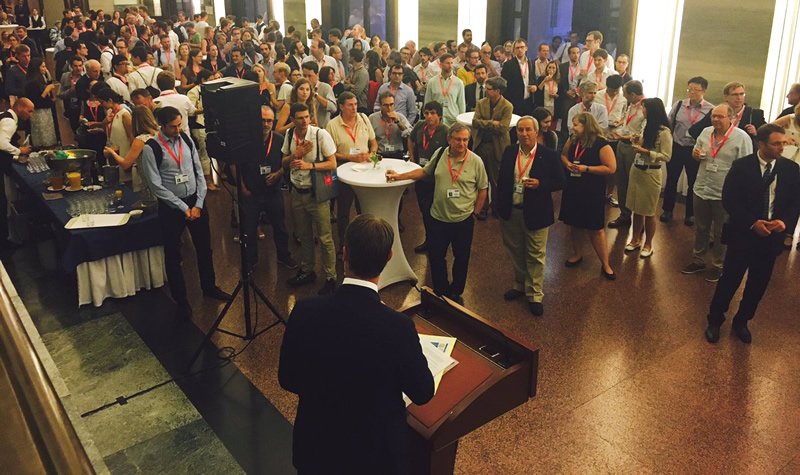Academic economists can help the world to meet the ambitious Sustainable Development Goals (SDGs) by getting more involved in the practicalities of making policy, participants said in a panel discussion on the side-lines of the Annual Congress of the European Economic Association, Europe's largest meeting of economists.
Moderating the panel discussion during Europe's largest meeting of economists, UNCTAD Deputy Secretary-General Joakim Reiter said the SDGs can be achieved only if the world's 48 Least Developed Countries can grow faster in the next decade than China has done in the last 15 years. A backdrop of weak global trade notwithstanding, middle-income countries will also have to boost their economies while the cost of the SDGs has been put at $2.5 trillion.
Emphasising the importance of bridging the gap between academics and policy makers, Mr. Reiter earlier signed an agreement with University of Geneva rector Yves Flückiger to show UNCTAD's commitment to building ties between thinkers and policy makers.
The Memorandum of Understanding between the two organisations will "enhance interdisciplinary research and promote policy makers' and practitioners' engagement in supporting the development agenda".

"We want to strengthen the links with you and I hope some of you are interested in strengthening links with us," Mr. Reiter said.
The panel featured former World Bank chief economist and emeritus chair of the Paris School of Economics François Bourguignon, former director of the United Nations University World Institute for Development Economics Research (UNU-WIDER) Anthony Shorrocks and Eliana La Ferrara, research dean at the Innocenzo Gasparini Institute for Economic Research of Bocconi University in Milan, Italy.
Mr. Bourguignon said: "Academics have the possibility to help policy makers, provide them with a framework to think about [development] challenges and possibly provide solutions to those challenges."
Ms. La Ferrara spoke about the "costs and benefits" to economists and governments in forming partnerships for development solutions, while Mr. Shorrocks said that research topics like the economic impact of climate change, migration and industrial policy which were once the preserve of specialist development economists were now becoming mainstream, global political preoccupations.
The panel was a side event to the congress and a parallel meeting of the Econometric Society, which brought together more than 1,500 academic economists in Geneva, Switzerland, from 22-26 August.
"For UNCTAD, this event was very important for our continuing exercise in the bridging the gap between theory and practice," Mr. Reiter said.



